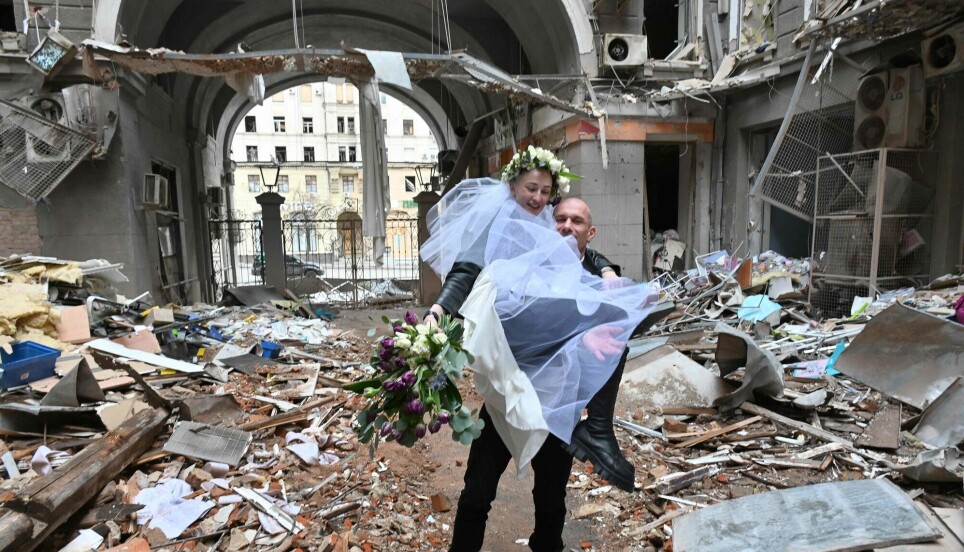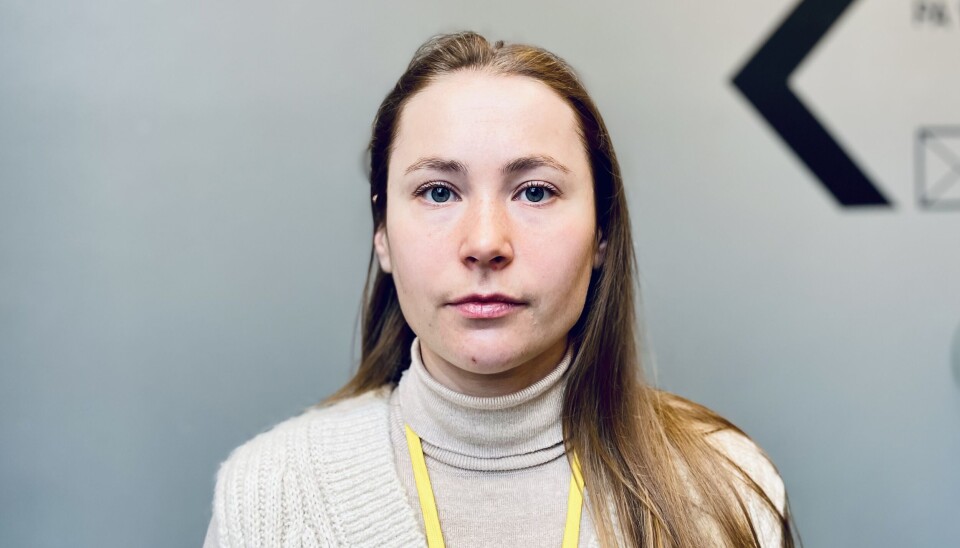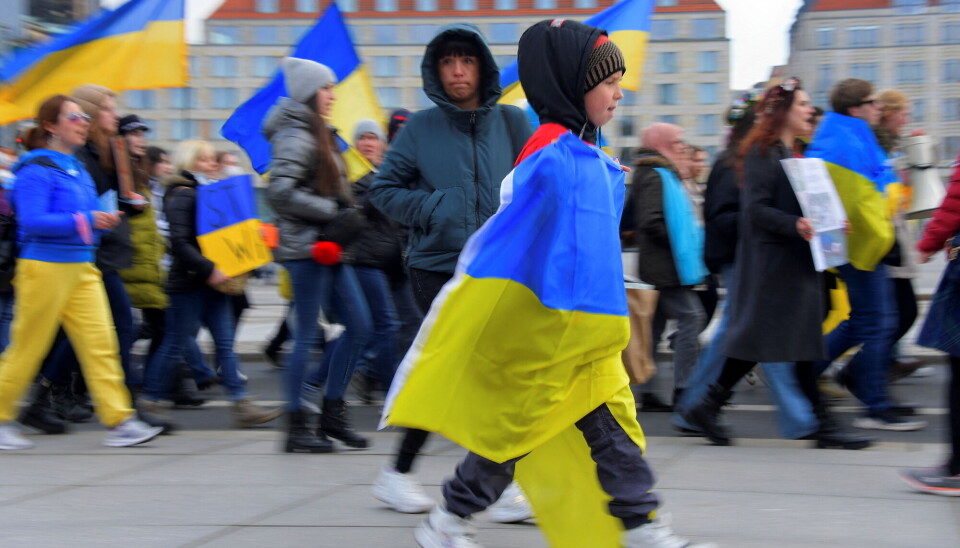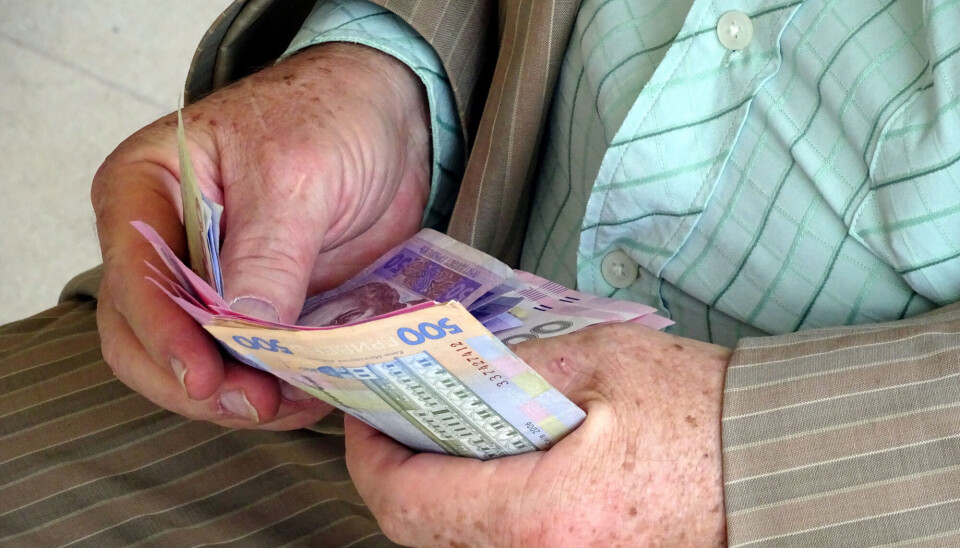
Fewer than 1 per cent of Ukrainians believe Russia will win the war
Ukrainian and Norwegian sociologists have asked 3 000 Ukrainians about their lives during the war. They found surprisingly little psychological damage. Researchers link this finding to the people’s strong will to resist.
"We can clearly see that the Russian-speaking Ukrainians are being the hardest hit by the war," says Oleksandra Deineko.
"It brightly proves the absurdity of Putin’s propaganda 'to defend' Russian-speaking Ukrainians since 2014", she says.
Deineko and her colleagues at the University of Kharkiv, Ukraine's second largest city right on the border with Russia, have collaborated with researchers at OsloMet University.
The researchers asked what they consider to be a representative sample of the Ukrainian population about their life situation and what they think about the war.
- Read more about Deineko: Ukrainian sociologist fled to Oslo: "Its really hard for me to be here, even though I'm safe"
Over 70 per cent believe Ukraine will win
Of the 3 000 Ukrainians surveyed, not a single person believes that Russia will emerge victorious from the war.
- Just over 70 per cent say they believe that Ukraine will win over Russia.
- Twelve per cent believe the war will end in a negotiated compromise.
- Just under 9 per cent responded that the question is difficult to answer.
20 per cent have felt anxious
“When people are psychologically affected by war, it can be difficult to say whether the number is high or low. But the numbers we are finding seem low,” says Deineko.
- Around 20 per cent of the Ukrainians surveyed say they have felt scared and anxious since the war began.
- Slightly more Ukrainians have experienced sadness. But only 10 per cent say they start crying more easily now than before.
- Just under 9 per cent say they have experienced a feeling of hopelessness after the war began.
“I interpret these figures to mean that the active resistance the Ukrainians are showing against Russia's attacks helps more people to cope mentally and emotionally. People feel that they’re able to withstand the strain.”
“For me, this is a really good sign,” says the sociologist from Kharkiv.

Many people engaged as volunteers
Marthe Handå Myhre is a researcher at OsloMet University. She cites figures from the same survey showing that many Ukrainians are now volunteering in one capacity or another.
“Even though Ukraine is receiving a lot of outside help, the situation is also largely one of Ukrainians helping Ukrainians,” says Myhre.
Almost 40 per cent of the 3 000 people that researchers have been in contact with say that they have helped friends, acquaintances or people they have met during the war.
Almost 20 per cent of all Ukrainians are doing some kind of volunteer work. A lot of young people in particular are stepping up.
“There’s been an enormous mobilization of Ukrainian civil society, especially when it comes to receiving people from the areas hardest hit by the war,” Myhre says.
The researchers also find it distinctive that as many as 8 per cent of all Ukrainians say they have resisted Russia on the Internet, employing everything from cyberattacks to blocking users who support Russia on Facebook.

Ukrainian-Norwegian cooperation
Researchers at the Ukrainian opinion poll agency Operatyvna Sociologia in Kharkiv have collaborated with colleagues at the Norwegian Institute for Urban and Regional Research (NIBR) on this study.
The telephone network in Ukraine still works, thus making it possible for the researchers to make calls to what they believe is a representative sample of the population.
Considerably more people were willing to participate in this survey than what researchers are used to. People living in the Russian-occupied areas of Crimea, Donetsk and Luhansk did not participate.

Fleeing to the countryside
More than 20 per cent of the Ukrainians surveyed reported that they had been displaced from their homes by the war.
“People who flee internally in Ukraine often go from cities to family or friends living in the countryside, where they feel safer,” says Deineko.
Only 11 per cent of the elderly in Ukraine have fled their homes. The sociologist from the University of Kharkiv believes this has to do with the fact that moving from one place to another is particularly difficult for the elderly. Many older people may be disabled due to health problems.

Majority want to return home quickly
More than three million people have now been forced to flee Ukraine according to figures from the UN.
Ukrainians who have fled abroad were also called for this survey. The researchers are somewhat less certain about the numbers for these respondents as they only make up a smaller group among the 3 000 participants.
About 60 per cent of the Ukrainians who have fled abroad answer that they want to return home as soon as possible.
“Most Ukrainians have no desire to leave the place where they live. Moving elsewhere now is involuntary, whether it’s within Ukraine or abroad,” says Deineko.
Only 3.4 per cent of the refugees say they want to apply for refugee status abroad, and only 1.7 per cent wish to apply for citizenship in the country that they have fled to.
Most young people want to stay abroad. All the older respondents told researchers that they want to go home again.
“A clear majority of all Ukrainians want to return to their hometown,” says the researcher from Karazin University in Kharkiv.
“At the same time, 35 per cent of them want to work in the place where they’re living as refugees right now. A lot of people fleeing Ukraine want to try to manage on their own,” she says.
Russian-speakers hardest hit
The war in Ukraine has so far been much harder on Russian-speaking Ukrainians than on those who speak Ukrainian.
The Russian-speaking areas of the north, east and south have suffered the greatest destruction. Twice as many people in these areas as in the rest of the country say that they now lack food and medicine.
Among those surveyed in the Russian-speaking parts of the country, 15 per cent say that their own home has been destroyed by the war, and 24 per cent have friends who have had their homes destroyed.
“The absurdity is that Putin says he has gone to war to defend Russian-speaking Ukrainians,” says Deineko.
You can read more about the Ukrainian-Norwegian research project ARDU here.
Translated by: Ingrid P Nuse
----
This article was updated on April 7 in order to make some changes to the opening quote which had not been translated entirely correctly.
Read the Norwegian version of the article on forskning.no
































